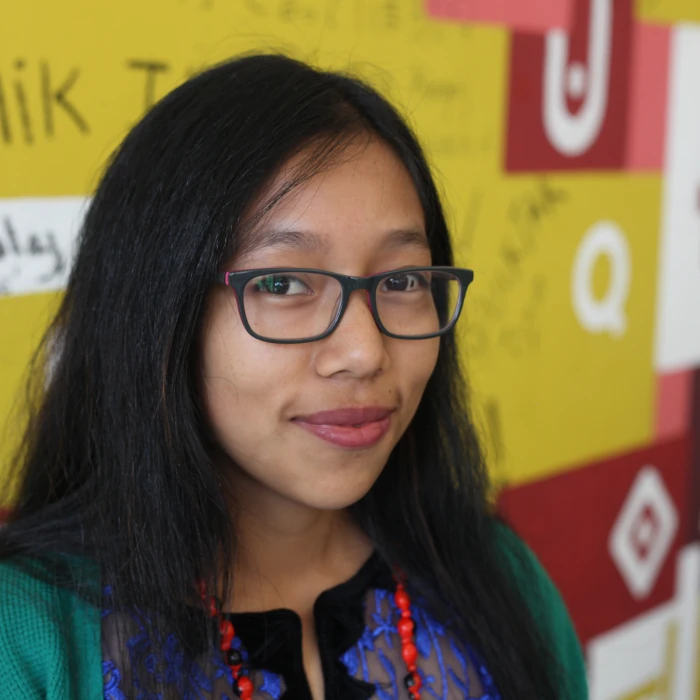This audio interview is in Spanish. Transcript is available in English.
Bringing an indigenous language to the internet is to make sure the culture and history of that indigenous people is visible online. As our interviewee, Cecilia Tuyuc says, a language “is not only learning words but it is also part of the culture and memory of a people”. Cecilia is a teacher and language activist from San Juan de Comalapa, Guatemala. She is part of many initiatives that seek to bring Mayan languages to the digital space.
The creation of content on Wikipedia articles in Q’eqchi’ is a significant part of this work. However, getting people to write Wikipedia articles in a volunteer capacity with the Guatemalan socio-economic context is proving rather difficult. As Cecilia explains carrying out unpaid work on a sustained basis in Guatemala is a luxury that many people cannot afford.
Cecilia shares what are the digital platforms her communities are using to share Mayan languages, what are the cultural, technical and socio-economic barriers to create and promote these languages online and what are the initiatives of people who, like her, see the importance of the internet to generate awareness and interest around their native languages. As an example, she talks about the racism that still exists today in urban areas towards indigenous people in Guatemala, and how it negatively impacts the recognition that should be given to native languages:
In this interview, Cecilia also reflects upon the role of women in preserving ancestral knowledge and in teaching native languages. Through this transfer of knowledge, she tells us, “we learn the connection we have with our mothers, our family, and mother nature.”
Finally, Cecilia invites those listening to her, especially people in urban areas, “to join in this challenge of making languages visible on the internet: that this is our fight, since all languages have the right to live in this space.”

